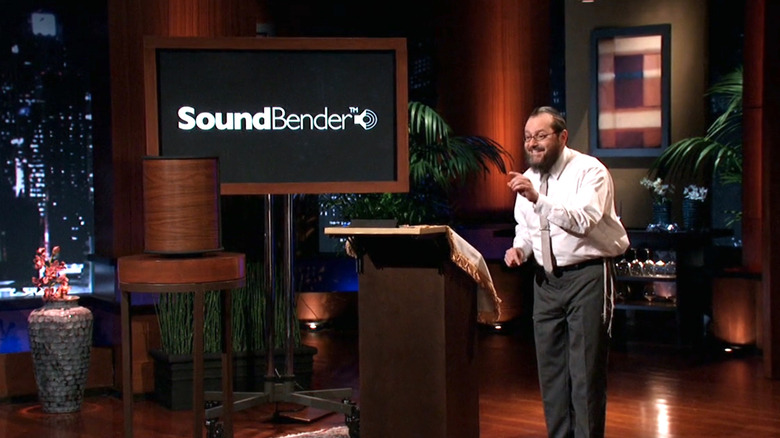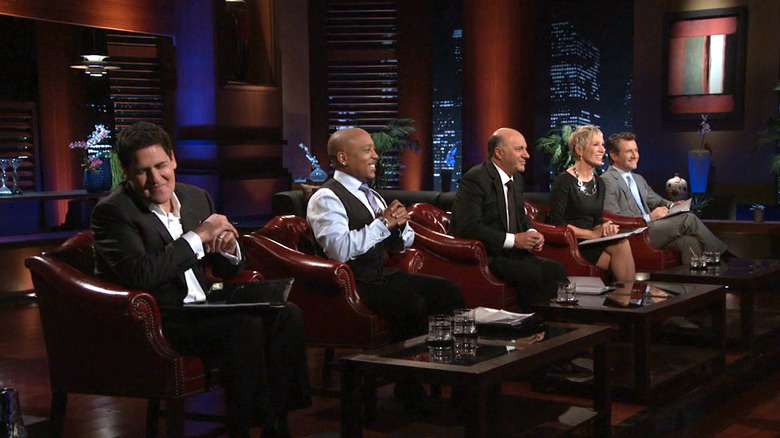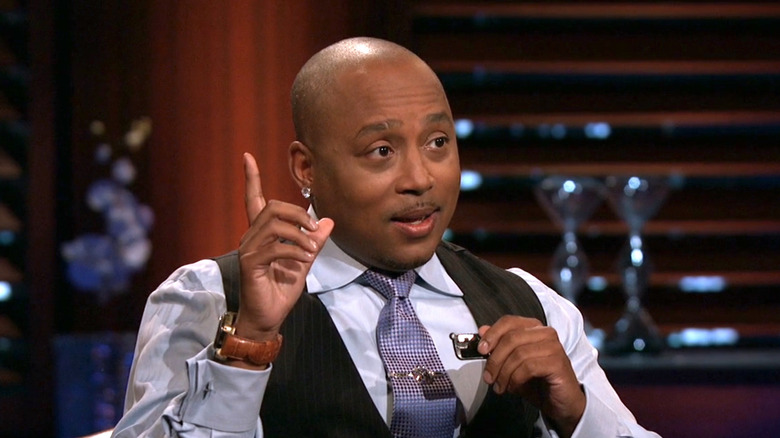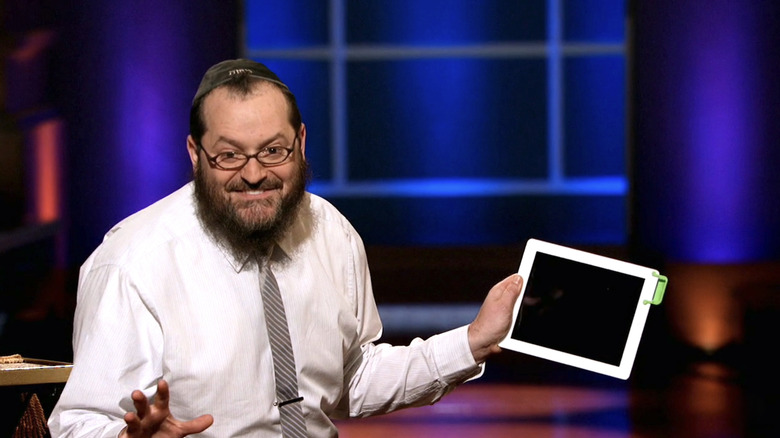There’s been no particular shortage of memorable products to have made their primetime debut on the “Shark Tank” soundstage during the series’ 16 seasons and counting on the air. The same could also be said for the eager entrepreneurs who turn up week in and week out to pitch intriguing products, like Season 7’s Fixed App, to the series’ panel of would-be investors. And if you’re at all familiar with the series’ format, you know a successful pitch often hinges on whether or not the pitcher is as impressive as the product.
Advertisement
While the “Shark Tank” panelists were, perhaps, not quite as taken with Rabbi Moshe Weiss as the were with Season 8’s Toor Lockbox creator Junior Desinore, the jovial spiritual leader more than made an impression on the likes of Mark Cuban, Daymond John and Barbara Corcoran as the he sought financial support for is product, the SoundBender Amplifier. In fact, a case could be made that he made the sort of impression that ensured he’d be remembered among the best of the “Shark Tank” entrepreneurial lot.
As for Weiss’ product, the tiny device designed to bolster the sound of an iPad speaker for its user made a lasting impression as well. As “Shark Tank” fandom knows, the mix of a good product and a good pitcher does not always translate to a deal, though Weiss’ ask of $54,000 for 26% of his enterprise proved enticing enough for both John and Robert Herjavec to offer a deal.
Advertisement
What happened to The SoundBender Amplifier on Shark Tank?
Moshe Weiss’ Rabbinical background was front and center in the sizzle reel that aired prior to his entrance into the “Shark Tank” studio. And yes, the amiable Rabbi leaned into his spirituality throughout his pitch. At one point, he even stepped behind a make-shift Bimah to preach about his simple, yet decidedly clever little device.
Advertisement
To be clear, the SoundBender Amplifier is not an amp in the traditional sense. A case could even be made that the SoundBender didn’t amplify sound at all, and instead simply redirected it towards the user of a tablet. Semantics aside, Weiss would go on to explain that he came up with the idea after noticing he was constantly cupping his hand around his ear to hear sounds from the iPad better. More importantly, the product did everything Weiss claimed it would when he attached it to his own iPad mid-pitch, with even the Sharks seizing on a noticeable change in volume.
Functionality aside, the Sharks were more intrigued by the economics of Weiss’ product, with the Rabbi claiming they cost just $1 to make and were selling for $12.99 each. Moreover, they liked that Weiss claimed he was nearing a retail deal with Walgreens. Daymond John was the first shark to bite, though his offer altered Weiss’ ask to the tune of 40% equity in the SoundBender brand, and was contingent on the Walgreens deal closing. While Robert Herjavec matched the deal sans contingencies, Weiss ultimately opted to work with John and left the “Shark Tank” stage with a deal in place.
Advertisement
What happened The SoundBender team after Shark Tank?
Rabbi Moshe Weiss was positively giddy after closing his deal with Daymond John on “Shark Tank.” During his brief exit interview, he admitted that he chose to work with John over Robert Herjavic largely because he believed the former shark’s marketing acumen would be key in helping elevate the SoundBender’s place in the burgeoning market for tablet accessories. Weiss’ hunch about John paid off. While many “Shark Tank” deals ultimately don’t close even after the on-camera agreement, it seems that John did indeed get into business with Weiss, noting in a LinkedIn post that he was grateful to the SoundBender inventor for “allowing me to invest in his company and his dream.”
Advertisement
Given that fact, you’d be correct in assuming that the Walgreens deal Weiss touted during his pitch eventually did close, with the SoundBar inventor noting in an interview given several months after his “Shark Tank” appearance that the product was being stocked in about 350 stores. Rabbi Weiss also noted that the product was “doing brisk sales” online after the “Shark Tank” exposure, and that John was then working to have SoundBender featured on a TV shopping channel. Likewise, Weiss claimed he was developing new products for iPad Minis and even for large-screen televisions.
Per reports, John and Weiss also worked out a licensing deal with Wish Factory that guaranteed upwards of $2 million in sales per year. The duo eventually even got their product onto the shelves of big-box electronics retailer Best Buy.
Advertisement
Is The Soundbender Amplifier still around today?
Given how well things were going for Rabbi Moshe Weiss and his growing SoundBender empire, it might come as a surprise that the business no longer appears to be operational. That is in no small part because Weiss suddenly passed away in 2016 due to heart complications. The Rabbi, teacher, and successful entrepreneur was 41 years old at the time of his death, and in the immediate wake of his passing, operations surrounding the SoundBender brand were, understandably, put on hold.
Advertisement
It seems the hold was not permanent, as the SoundBender brand eventually got back to business. Still, it’s unclear exactly what the state of affairs was after its founder’s passing. But the company’s site was reportedly up, running, and selling products as recently as 2021, with its wares also still being sold through Amazon and other outlets. While the SoundBender site is still operational, it clearly has not been updated for quite some time, as it says it has products designed for iPad 2, 3, and 4 (iPads are currently in their 11th generation, with those tablets being well reviewed by our own SlashGear reviewer).
Nonetheless, SoundBenders are no longer being sold on the company site. They’re also listed as “currently unavailable” on Amazon these days, and the company’s socials have not been updated for several years now. Given all those facts, it looks like the SoundBender empire did not truly survive the passing of its beloved founder, even if few will ever forget Rabbi Weiss’ refreshingly spirited “Shark Tank” appearance.
Advertisement












